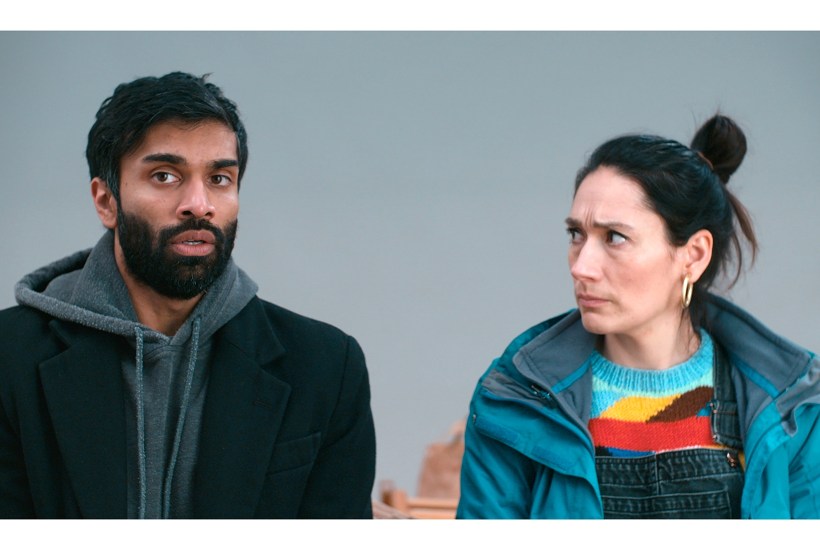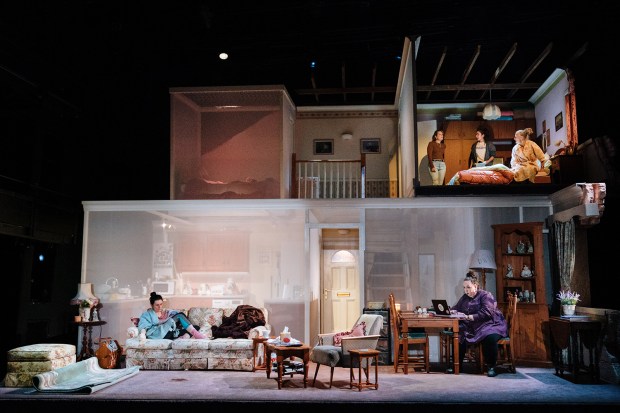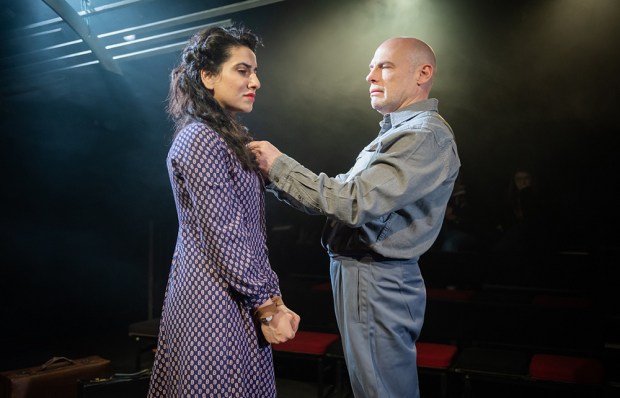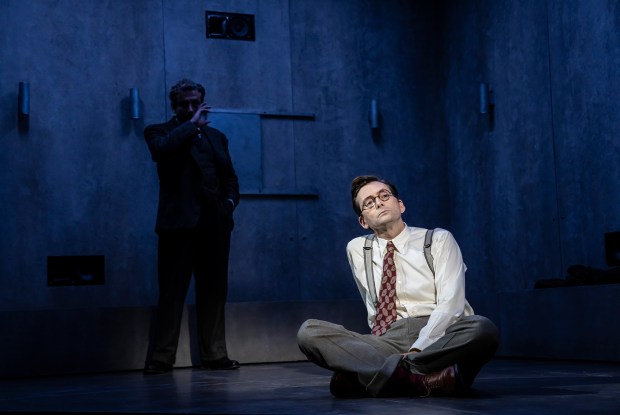Good Grief is a new drama starring Sian Clifford who shot to fame as the older sister in Fleabag. The script by Lorien Haynes is described by the producers as ‘sharp, funny, brutal, irreverent and quintessentially British’. The action begins after a funeral where a handsome young Asian guy named Adam, chats to a fellow mourner, Cat, who looks about ten years older than him. Cat has set up Adam with a blind date that he didn’t enjoy. ‘I was peeling her off me,’ he says, ungallantly. But Adam’s sexuality is rather a puzzle. His wife, Liv, has died and he boasts to Cat about Liv’s endless romantic conquests. At parties Liv would spend ages telling Adam which men she’d recently seduced. And Adam claims to be proud of his dead wife’s erotic prowess. It’s not clear why. The script is keen to outrage us with its sexual frankness, like Fleabag, but a lot of it seems a bit weird. Adam tries on a pink wig and imagines himself wearing one of Cat’s skirts. Perhaps he’s a cross-dresser. Or maybe he’s gay. That would explain his pride in Liv’s success with men. And yet Adam is also a red-blooded love god who finds Cat wildly attractive. They book a hotel room and agree to pass a platonic night together with no touching. Who are they kidding?
They start an affair which escalates into ‘epic shags’. Cat wants to keep their romance quiet in case someone called Fiona finds out. Who is Fiona? During their next ‘epic shag’ the doorbell rings. Could it be Fiona? Yes, it is. Adam goes to the door while Cat hides in a cupboard. What if Fiona enters and spots her? But Fiona doesn’t enter. She goes away and Cat blames Adam. ‘You shut me in a cupboard for Fiona.’ No, love, you entered the cupboard voluntarily.
This scene comes at the climax of the story when the characters ought to be facing the most stressful and challenging experiences of their lives. But they’re hiding in bits of furniture. The script feels like half a storyline from a midweek BBC drama featuring dinner parties and adultery in north London. Perfect to fall asleep to. My guess is that the series has already been commissioned.
The winner of the 2020 Papatango award, Shook, is set in a young offender institution. Three dangerous criminals spend their days in the games room playing Connect Four and Battleship. Riyad is a gangster who speaks in a pastiche of street vernacular. ‘Aways da way, fam,’ he says. And he likes to finish his sentences on an exclamatory ‘trust!’, with the final ‘t’ unvoiced. Cain is an illiterate Scouser serving time for attacking a shopkeeper, and Jonjo is a Cockney with a stammer who murdered his stepdad: ‘They say I hit him with a kettle 48 times but I don’t remember.’
The scene is set for an almighty power struggle between these dangerous youths. But the writer, Samuel Bailey, has no interest in on-stage violence and wants to show us the prisoners’ gentle, caring natures. Riyad dreams of passing a maths exam and starting a business. Cain begins to weep when he realises his life will never improve. And Jonjo, the killer with an uncontrollable temper, likes to cradle baby dolls while looking mournful and broody. At times, the script sounds like an advert for Home Office rehabilitation services. ‘I’m going to be the me that I should have been,’ parrots Cain.
And the men’s libidos seem to have gone missing. When a civilian named Grace enters, a slim beauty in a clingy dress, they show not a shred of sexual interest in her. Grace is a comically talentless personal development officer who teaches them how to cope with a baby having a heart attack. (Is that a common problem?) She gives them general advice about childcare. ‘They bump their heads and graze their knees and come to you for comfort.’ One of her tasks is to encourage them to take exams but her IQ is so low she can’t explain what ‘Further Mathematics’ means. Riyad has difficulty with it too. They ponder this baffling term for a moment before Grace delivers a tentative verdict: ‘Further Mathematics. They probably just cover different topics.’
The characters are easy to like but they all have the same two attributes: kind-heartedness and low intelligence. And there’s no real storyline. Riyad’s maths test is forgotten when he gets into a fight off-stage. Cain has a chance to apply for a reduction in his sentence by apologising to his victim but he’s too stubborn, or thick, even to simulate his contrition. And Jonjo, who appears brain-damaged, withdraws from the story and becomes an iconic figure of broken masculinity, like a statue rather than a human being. It’s a decent drama but there’s far too much chat and not enough plot.
Got something to add? Join the discussion and comment below.
Get 10 issues for just $10
Subscribe to The Spectator Australia today for the next 10 magazine issues, plus full online access, for just $10.
You might disagree with half of it, but you’ll enjoy reading all of it. Try your first month for free, then just $2 a week for the remainder of your first year.














Comments
Don't miss out
Join the conversation with other Spectator Australia readers. Subscribe to leave a comment.
SUBSCRIBEAlready a subscriber? Log in